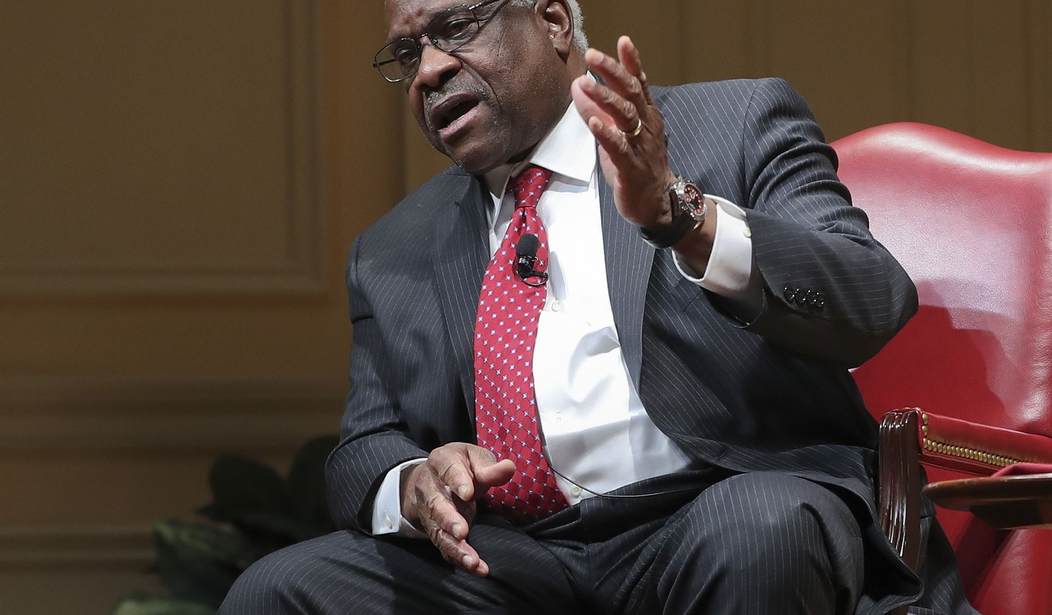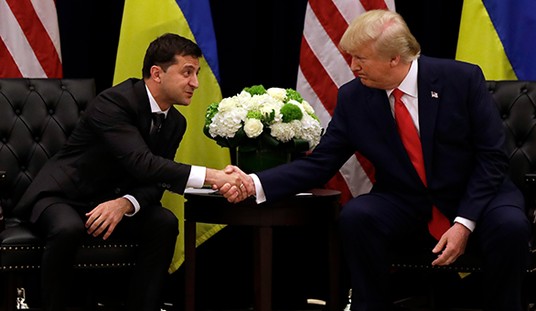Supreme Court Justice Clarence Thomas has just issued a 20-page diatribe against abortion, comparing the abortion rights movement to eugenics. The conservative justice wrote the opinion in response to the Supreme Court’s decision to decline to review a case related to abortion law in Indiana.
“The use of abortion to achieve eugenic goals is not merely hypothetical,” wrote Thomas in his concurring opinion. He then went on to describe the relationship between abortion, birth control, and eugenics.
“The foundations for legalizing abortion in America were laid during the early 20th-century birth-control movement,” continued Thomas. “That movement developed alongside the American eugenics movement. And significantly, Planned Parenthood founder Margaret Sanger recognized the eugenic potential of her cause. She emphasized and embraced the notion that birth control ‘opens the way to the eugenist.’”
Thomas also wrote that at some point, the Supreme Court will have to “confront” the sort of abortion ban passed in Indiana in 2016, which was struck down by an appellate court last year. The law in question had prohibited abortions in cases where doctors knew the mother’s reason for obtaining the abortion was due to the race, sex, or disability of the fetus.
On Monday the Supreme Court issued a decision letting the appellate ruling stand. The order stated that the court held “no view on the merits” of Indiana’s abortion ban, and also mentioned that no other appellate court had yet weighed the question. Additionally, SCOTUS upheld an aspect of the Indiana law which requires abortion providers to properly dispose of fetal remains through cremation or burial.
Recommended
Thomas said his reason for writing the concurrence was to explain his belief that bans like the one in Indiana “promote a State’s compelling interest in preventing abortion from becoming a tool of modern-day eugenics.”
“This case highlights the fact that abortion is an act rife with the potential for eugenic manipulation,” he wrote. “From the beginning, birth control and abortion were promoted as means of effectuating eugenics. Planned Parenthood founder Margaret Sanger was particularly open about the fact that birth control could be used for eugenic purposes.”
According to Thomas, there is “a growing body of evidence suggests that eugenic goals are already being realized through abortion.”
Thomas went on to describe the problem of higher abortion rates in African American neighborhoods.
“Whatever the reasons for these disparities, they suggest that, insofar as abortion is viewed as a method of ‘family planning,’ black people do indeed ‘tak[e] the brunt of the “planning,”‘” Thomas wrote.
The concurrence ended with Thomas noting that, while “the Court declines to wade into these issues today, we cannot avoid them forever.”
“Having created the constitutional right to an abortion, this Court is duty bound to address its scope,” said Thomas, who went on to reference the court’s 1992 decision Planned Parenthood v. Casey, which upheld a woman’s right to an abortion.
“In that regard, it is easy to understand why the District Court and the Seventh Circuit looked to Casey to resolve a question it did not address. Where else could they turn? The Constitution itself is silent on abortion,” Thomas concluded.
























Join the conversation as a VIP Member